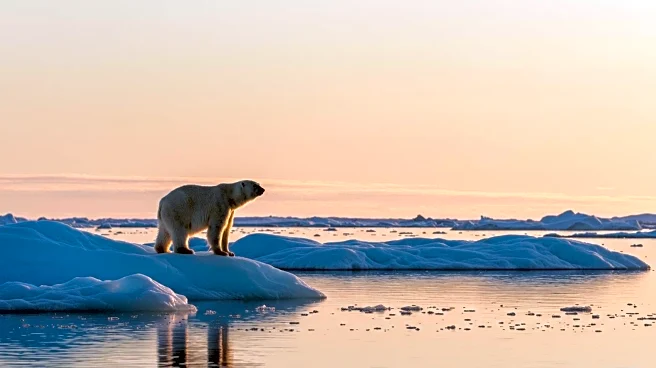What is the story about?
What's Happening?
The climate crisis is causing severe heatwaves that threaten wildlife populations globally. In Tecolutilla, Mexico, howler monkeys fell from trees due to dehydration and exhaustion during a heatwave. Similar events are occurring worldwide, with flying foxes in Australia and barnacles in Canada suffering from extreme temperatures. Ecologists are increasingly concerned about the impact of heatwaves on biodiversity, as species struggle to survive in rising temperatures. Research indicates that tropical bird populations have declined significantly due to heatwaves, highlighting the urgent need for climate action to protect wildlife.
Why It's Important?
The impact of extreme heat on wildlife underscores the broader consequences of climate change on ecosystems. As temperatures rise, species face increased risk of extinction, disrupting biodiversity and ecological balance. The loss of wildlife can have cascading effects on food chains and habitats, affecting human societies reliant on natural resources. Addressing the climate crisis is crucial to preserving biodiversity and ensuring the sustainability of ecosystems. The findings emphasize the need for global cooperation and policy measures to mitigate climate change and protect vulnerable species.
Beyond the Headlines
The research highlights the ethical responsibility to address climate change and its impact on wildlife. The loss of biodiversity poses long-term risks to ecological stability and human well-being. Efforts to combat climate change must consider the preservation of natural habitats and the protection of endangered species. The study calls for increased awareness and action to prevent further biodiversity loss and ensure a sustainable future.


















